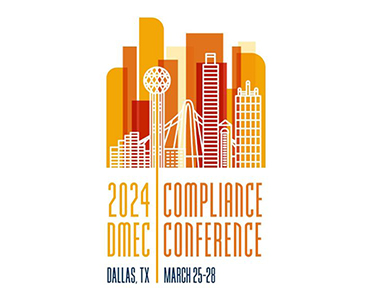There was a time when leaves of absence were little understood, but the more time that goes by, the more ingrained leave rights become in our day-to-day lives.
This go-around, get schooled on school activities leave, read through our quarterly case law recap, and familiarize with this past quarter’s statutory PFML rundown, including big changes and the addition of reproductive loss leave in California, key clarifications to Colorado’s FAMLI program, developments and details in Illinois’s push for paid leave, and more flexibility to supplement paid leave benefits in Massachusetts.
So if you find yourself asking, “What’s leave got to do with it?,” the answer is: EVERYTHING!
FEDERAL UPDATES

We spend a lot of time focused on State FMLA, Paid Family and Medical Leave, and Paid Sick Leave laws, but do you ever find yourself wondering, “What about School Activity Leave?” Me neither. Let’s change that, shall we? These regulations should be on your radar to ensure requests for time off are not incorrectly denied. Let’s take a look at the states that offer protections.
No federal law covers school activity leave, but eight states (California, Illinois, Massachusetts, Minnesota, Nevada, North Carolina, Rhode Island, and Vermont) and the District of Columbia require covered employers provide leave for parents to attend school or daycare activities. Many of these leaves are unpaid, but the laws often permit employees to use accrued vacation or other paid time off. Furthermore, New Jersey and New Mexico’s paid sick leave laws permit employees to use their available paid sick leave for similar reasons.
California – School Activities Leave & Leave for School Disciplinary Proceedings
Employers with 25 or more employees at the same location must allow employees who are parent up to 40 hours of leave per school year to participate in any of the following:
- Finding, enrolling, or reenrolling their child in school or with a licensed childcare provider.
- Participating in activities of the school or childcare provider.
- Addressing a childcare provider or school emergency.
Employers may require employees to provide documentation verifying the employee participated in the school or childcare activity, including the date and time of the activity. Furthermore, employers may require employees to use accrued vacation or personal leave during the leave.
Additionally, under leave for School Disciplinary Proceedings, employers are obligated to provide employees who are the parent or custodial guardian time off when required to attend a portion of a school day because the child has been suspended. There is no hour limit specified for this leave. The employee must give reasonable notice and the employer may require employees to provide documentation. Employees may use their existing vacation time or other appropriate accrued paid time off.
Washington, DC – Parental Leave Act
All employers must provide eligible employees working in the District of Columbia up to 24 hours’ leave during a 12-month period to attend or participate in school-related events. The leave is unpaid, but employees may elect to use accrued vacation or other paid time off. Employees must provide at least 10 days’ advance notice unless the need for time off is not reasonably foreseeable. Employers may deny leave only if granting it would disrupt the employer’s business and make the achievement of production or service delivery unusually difficult.
Illinois
Employers with 50 or more employees in Illinois must provide eligible employees who are the parent or legal guardian of a child enrolled in school up to eight hours of unpaid leave per school year, but no more than four hours on any day, to attend school conferences, behavioral meetings, or academic meetings if the conferences or meetings cannot be scheduled during non-work hours. Eligible employees have worked for the company for at least six consecutive months and worked, on average, a number of hours equal to or greater than one-half of a full-time position. The leave may not be taken unless the employee has exhausted all accrued vacation or other appropriate leave available except sick and disability leave. The employee must provide a written request at least seven days in advance. In emergency situations, no more than 24 hours’ notice may be required. The employee must consult with the employer to schedule the leave so as not to disrupt the operations. The employee must submit verification from the school within two working days of the visit.
An employer is not required to grant this leave if doing so would result in more than 5% of the workforce taking school leave at the same time.
Massachusetts – Small Necessities Act
Employers subject to FMLA must provide FMLA-eligible employees up to 24 hours of unpaid leave during a 12-month period to participate in school activities related to their child’s educational advancement. An employee may elect, or the employer may require, the employee to use paid vacation, personal leave, medical, or sick leave. If the need for leave is foreseeable, the employee must provide at least seven days’ notice. If the need for a leave is not foreseeable, the employee must provide such notice as is practicable.
An employer may require written certification signed by the employee including the date leave will be taken, the duration, purpose of leave, and the employee’s signature.
Minnesota – School Conference and Activities Leave
This law allows employees up to 16 hours of unpaid leave during any 12-month period to attend their children’s special education, school conferences, or school-related activities if those activities cannot be scheduled during non-work hours.
All Minnesota employees are eligible regardless of the size of their employer or the amount of time they have worked for their employer. When leave is foreseeable, reasonable notice must be provided and the employee must make a reasonable attempt to schedule the leave so as not to disrupt unduly operations. Employees may use accrued vacation or other paid time off for the absence.
Nevada
Employers with 50 or more employees must grant parents of a child who is enrolled in school up to an aggregate of four hours per school year of unpaid leave to attend parent-teacher conferences, school-related activities during regular school hours, volunteer, or otherwise be involved at the school during regular school hours; and attend school-sponsored events. The leave must be taken in increments of at least one hour and the employer may require the employee to provide at least five school days’ written notice in advance of the leave. The leave must be at a time mutually agreed upon by the employer and the employee. The employer may require documentation.
New Jersey
Under New Jersey’s earned sick and safe leave law, employees may use their paid sick leave to attend a school-related conference, meeting, function, or other event requested or required by school officials.
New Mexico
Under New Mexico’s Healthy Workplaces Act, employees may use their paid sick leave for meetings at the employee’s child’s school or place of care related to the child’s health or disability.
North Carolina
All employers must provide up to four hours per year of unpaid leave to attend or otherwise be involved at their child’s school. The leave must be at a time mutually agreed upon by the employer and employee. In addition, the employer may require at least 48-hours’ written notice prior to the leave, along with written verification from the school. An employee may substitute accrued vacation leave or other appropriate paid leave for any part of the school involvement leave.
Rhode Island
Rhode Island employers with 50 or more employees must provide up to 10 hours of unpaid leave during any 12-month period to attend school conferences or other school-related activities. To be eligible for the leave, employees must work an average of at least 30 hours per week and been employed for at least 12 consecutive months. Employees must provide at least 24-hours’ notice and make reasonable effort to schedule the leave to not disrupt unduly the employer’s business operations. Employees may substitute accrued vacation or other paid time off.
Vermont
Employers that employ 15 or more employees for an average of 30 or more hours per week are required to provide up to four hours of unpaid, short-term family leave in any 30-day period, not to exceed 24 hours in any 12-month period, to participate in preschool or school activities. Employers may require leave be taken in a minimum of two-hour segments. An employee must provide the earliest possible notice, but in no case later than seven days, before leave is to be taken except in the case of an emergency. Employees may elect to use any accrued vacation or personal leave during the time off.
CASE LAW

How Many Leave Extensions is Too Many?
On November 7, 2023, the United States Court of Appeals for the First Circuit (Maine, Massachusetts, New Hampshire, Puerto Rico, and Rhode Island) affirmed the dismissal of a teacher’s suit against her former employer, Austin Preparatory School (“Austin Prep”), in which she claimed the school fired her for requesting extended leave as an accommodation following multiple surgeries. Does this type of scenario sound familiar to any of you? The First Circuit held that Nancy Der Sarkisian’s request for extended leave, with no end date, was unreasonable considering the circumstances specific to teaching at a school.
Here’s the background: Der Sarkisian was an English teacher at Austin Prep. Just before the 2019–2020 school year, Der Sarkisian learned she would need hip surgery. She informed Austin Prep she would have surgery on September 5, the third day of the school year, and be out for four weeks. Austin Prep approved the absence and retained a substitute.
On October 13, Der Sarkisian informed Austin Prep there was a complication that would require a second surgery and additional recovery time. The medical certification confirmed she would be “incapacitated” until January 5, 2020. Austin Prep agreed to extend Der Sarkisian’s leave to January 6, 2020. However, on December 5, Der Sarkisian alerted Austin Prep she would not be back in January because she had undergone a third surgery.
Austin Prep then sent Der Sarkisian’s doctor an accommodation questionnaire and job description, requesting if any reasonable accommodations would enable her to perform the essential functions of her job. The doctor stated Der Sarkisian was “substantially limited” in her ability to perform several “major life activities,” was having trouble performing all job functions because of her limitations, and that her impairment would last three to six months. Der Sarkisian’s doctor suggested “total temporary disability” as a reasonable accommodation.
However, Austin Prep could not accommodate the request for an “extended and continuing leave of absence with no set end date,” and terminated her employment on December 26, 2019.
After failed mediation, on appeal, the First Circuit affirmed the district court’s grant of summary judgment. The First Circuit held that Der Sarkisian’s claim failed because she had not demonstrated she was a “qualified individual,” or she was able to perform the essential functions of her job with or without reasonable accommodation. The First Circuit agreed with the district court that “in person attendance” was an essential function of the teaching position.
The First Circuit disagreed with Der Sarkisian’s argument that her request for a further extension of leave, which would have allowed her to perform this essential function, was reasonable. Instead, the First Circuit adopted the reasoning that in the context of teaching and related responsibilities of a school, an extended period of leave with no end date was not reasonable because of its negative effect on the school’s interest in maintaining consistency in educators for its students, and because the school would risk relying on a temporary replacement educator with no formal contract who could leave at any time.
Please note what Austin Prep did well – they granted several leave approvals, and when extensions continued to occur, they issued the accommodation questionnaire in an effort to identify reasonable accommodations that may enable the employee to return to work and perform the essential functions of the role. This is a critical step that cannot be skipped over. Ultimately, this is a positive decision for employers, and especially those whose operations rely on the consistent attendance of employees. However, employers should still proceed with caution and continue to evaluate each employee request for accommodation on a case-by-case basis as every situation is different and may present its own set of risks.
STATE UPDATES
CALIFORNIA
Leave for Reproductive Loss
Senate Bill (SB) 848 went into effect on January 1, 2024, and requires employers with five or more employees provide employees who have worked for at least 30 days with up to five days of reproductive loss leave.
Employers must grant employees five days of leave following a reproductive loss. A “reproductive loss” includes a miscarriage, failed surrogacy, stillbirth, unsuccessful “assisted reproduction” (such as artificial insemination or embryo transfer), or failed adoption. In the event an employee suffers more than one reproductive loss within a 12-month period, employers are not obligated to grant more than 20 days within 12 months.
An employee must be permitted to take the leave on nonconsecutive days and the leave must be completed within three months of the reproductive loss. The leave time can be unpaid, however, the employee can use other leave balances otherwise available.
Increase to Paid Sick Leave Requirements
On October 4, 2023, California’s governor signed Senate Bill (SB) 616, which increases the amount of paid sick leave employers are required to provide to California employees.
Beginning on January 1, 2024, employers must increase the amount of sick leave provided from three days/24 hours to five days/40 hours.
SB 616 also requires employers to increase the accrual and carryover cap to 10 days/80 hours. However, no accrual or carryover is required if the employer provides five days/40 hours of paid sick leave upfront each year of employment, calendar year, or 12-month period.
Removal of Taxable Wage Limit for State Disability Insurance (SDI) and Paid Family Leave (PFL) Contributions
In September 2022, legislation was signed that impacted the California SDI and PFL programs in two ways; one of those changes became effective January 1.
1. Removal of the taxable wage limit cap on contributions began January 1, 2024. Prior to this, employees contributed 0.9% of the first $153,164 in wages. Now, the taxable wage limit on employee wages subject to SDI withholding rate is eliminated. Additionally, for 2024, the SDI withholding rate increases to 1.1 percent.
2. Increased benefit calculation for all employees beginning January 1, 2025:
• California workers currently receive 70% of earnings if making one-third or less of the state average weekly wage (SAWW). Workers who make more than one third of the SAWW receive 60% of earnings, subject to a cap.
• For leaves after January 1, 2025, workers who earn 70% or less than the SAWW will receive 90% of earnings and those who make more than 70% of the SAWW will receive 70%.

COLORADO
Miscellaneous FAMLI Updates
In October 2023, the Colorado Division of Family and Medical Leave Insurance amended several administrative rules that became effective January 1, 2024.
“Application year” is now measured forward from the date the employee uses paid leave, rather than backward. Additionally, an employee’s “regular work schedule” is determined based on the hours normally worked, rather than the days of the week.
The program also requires employers to submit wage reports to the state on the same quarterly schedule as they submit premiums.
Use of FAMLI Benefits
If a holiday occurs during a week a claimant is on continuous FAMLI leave, the employee will receive payment for the entire week. If the holiday occurs during a week during which the claimant’s leave is for less than the entire week, the claimant will only receive payment for the holiday if they would ordinarily have been expected to work on that day.
For the purposes of awarding benefits, the state will calculate the weekly wage based on the employee’s wages subject to the program’s premiums. Additionally, FAMLI benefit usage will be determined by dividing the employee’s hours of leave taken per week by their aggregate work schedule for that week.
The amended rules also clarify:
- If the employee cannot provide the state with the number of scheduled or worked hours during their leave, the state may assign a reasonable approximate work schedule.
- If an employee’s work schedule changes during leave, the state will adjust benefit awards to reflect the increase or decrease. This does not apply if the employee’s schedule reduces to zero hours.
- An employee’s regular work schedule must be calculated as of the first date of their leave and, after then, upon any notification of a change in the work schedule.
Notice to Employees
Employers must display the FAMLI program notice in a conspicuous and accessible place for employees. If an employee or workspace is remote, the employer must distribute the notice through electronic communication or conspicuously display it on their electronic platform. Additionally, this notice must be delivered to employees upon hiring and again within five days of learning that an employee may qualify for leave.
This notice must be provided in English, Spanish, and any other language spoken as a first language by at least 5% of the workplace. An employee may request the employer provide them with the notice in another language.
Notice to Employers
Under the amended rules, if the need for leave is foreseeable, a claimant must make a reasonable effort to schedule leave to not disrupt the employer’s operations in consultation with the employer. If they fail to do so, the employer may require the claimant to arrange leave in a less disruptive schedule with the approval of a healthcare provider.
If the need for leave is not foreseeable or 30 days’ notice is not possible, the claimant must provide notice as soon as practicable.
An employee’s failure to properly schedule leave or properly notify the employer of the need for leave does not allow the state to deny the employee’s application for FAMLI benefits, nor does it change the state’s obligation to timely pay the benefits.
My FAMLI+ Employer: New Features
Colorado has an enhancement for My FAMLI+ Employer: Employers have the option to designate a dedicated point of contact for their HR benefits manager. The designated contact will receive documentation when employees begin applying for FAMLI leave. If an employer does not have a designated HR benefits point of contact, employee benefit documentation will be sent to the main account holder on file. Make sure your subscription preferences are marked to receive updates for Company Administrators and/or Third-Party Administrators.

ILLINOIS
Paid Leave for All Workers Act
On November 3, 2023, the Illinois Department of Labor (IDOL) published proposed regulations interpreting the Illinois Paid Leave for All Workers Act (the “Act”) that took effect January 1, 2024. The Act will require nearly all covered Illinois employers to provide covered employees up to 40 hours of paid leave per year, to be used “for any purpose.” Illinois rulemaking procedures require at least a 90-day notice period before the regulations can be finalized, meaning employers will not have the final rules prior to the Act’s effective date.
Exemption for Pre-Existing Paid Leave Policies
The Act appeared to provide exemption language for employers with pre-existing paid leave policies that provided employees at least 40 hours of paid leave and offered employees the option, at their discretion, to take paid leave for any reason. If an employer’s policy fell within this exemption, the Act indicated that the employer would not need to modify its paid time off policy to comply.
The proposed regulations do not address whether any job protection must be provided, or if employers can continue to enforce their formal attendance policies.
Accrual and Carryover of Paid Leave
The Act allows employers to frontload or accrue paid leave over the benefit year. Per the proposed regulations, paid leave accrues at a rate of one hour for every 40 hours worked. If an employer selects the frontload method, the proposed regulations indicate the employer must give written notice to the employee informing the employee of the frontload amount before that frontload amount is granted.
Where paid leave is accrued, the Act indicates “all” accrued but unused paid leave must carry over from one 12-month period to the next. Notably, the proposed regulations indicate that “[e]mployers may establish a reasonable policy . . . restricting employees’ ability to carry over more than 80 hours of unused paid leave.”
Using Paid Leave
In general, the proposed regulations reiterate the employee ultimately determines whether and when to use paid leave.
The proposed regulations create a mechanism in which employers may deny paid leave requests in certain limited circumstances due to “operational necessity.” To do so, the employer must maintain a written policy that outlines how leave requests will be considered, and any basis for denial.
Employers denying leave based on operational needs must maintain and provide to the employee a record of each request that was denied and the reason for the denial.
Employer Paystub, Notice, and Posting Requirements
Under the Act, employers must satisfy the following notice requirements:
- Post an IDOL-provided notice in a conspicuous place on the work premises and include a copy of the notice in a written document, employee manual, or policy. The notice must be provided in English and any other language commonly spoken in the workplace.
- Provide a written policy that contains notice procedures for employees if required by the employer.
- Maintain accurate records showing hours worked, paid leave accrued and used, and remaining leave balance.
The proposed regulations require several additional requirements including the following:
- Provide employees with the paid leave policy prior to or upon commencement of employment or within 90 days after the effective date of the Act.
- Post a statement, written by the employer, summarizing the employer’s written policy and how an employee can obtain a copy of the document. The statement must be provided in English and any other language commonly spoken in the workplace.
Report employee’s paid leave accrual and remaining balance on each paystub and provide these records to the employee upon request.

MASSACHUSETTS
Massachusetts amended the Massachusetts Paid Family and Medical Leave Act to provide employers and employees more flexibility to use other accrued benefits to supplement paid benefits employees receive from the state. The new law was effective November 1, 2023.
Previously, individuals wishing to supplement the PFMLA benefit could use funds from (1) a temporary disability policy or program or (2) a paid family or medical leave policy (such as paid parental leave policy). The Department did not allow employers to “top off” or supplement PFMLA benefits with sick, vacation, or general paid time off. If an employee received payments from any of those policies, the state would not pay PFMLA benefits.
With the amendment, employees may supplement the PFMLA benefit with “any accrued sick or vacation pay or other paid leave provided under an employer policy” up to 100% of the employee’s average weekly wage.
Employers cannot require an employee to use accrued sick, vacation, or other paid leave benefits to top off the PFMLA benefit; the employee must be allowed to choose to use the benefit.

NEW HAMPSHIRE
New legislation will guarantee the right of nursing mothers to an unpaid 30-minute break every three hours to pump beginning July 1, 2025.
Like the federal PUMP Act, the law will also require employers to provide appropriate spaces in the workplace for a period of one year following the birth of the child.
All employers with at least six employees working in New Hampshire will be required to adopt policies to address the use of sufficient space and reasonable break periods for nursing employees. Employers will be required to make this policy available to employees at the time of hire.
Employees will be required to give their employer at least two weeks’ notice prior to needing break periods and space.
The law provides employers a single exemption from its terms, only for instances in which providing a reasonable break period and sufficient space would impose an undue hardship on operations.

OREGON
We’ve heard from many of you, as well as TPG employees, about fraudulent Paid Leave Oregon claims. Paid Leave has reported they are actively working to prevent and identify fraudulent claims.
The Oregon Employment Department recently published an article that outlines how every single application goes through identity verification to protect both customers and the Paid Leave trust fund.
If you have information about fraudulent claims, they want to know about it. All customers who want to report possible fraud can through the new Paid Leave fraud web page.
UPCOMING EVENTS

DMEC’s Compliance Conference is in Dallas, TX, from March 25–28, 2024. TPG will be speaking and will host a booth!
As a client of The Partners Group, DMEC is offering a $100 discount on your registration fees. This event is a great opportunity to meet and learn from leading experts in the absence management space. Reach out to mcorrea@tpgrp.com to learn how to access this discount.
HAVE QUESTIONS FOR OUR TOTAL ABSENCE MANAGEMENT TEAM?
CHECK OUT OUR BLOG




